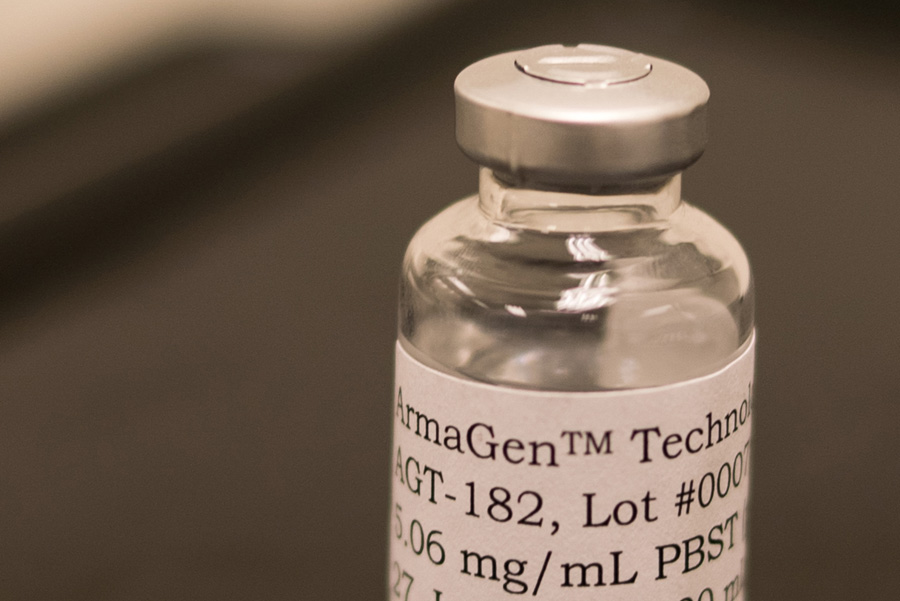ACTSI-supports first-in-man clinical trial for Hunter syndrome at Emory University Hospital

A 31-year old man recently received the first investigational enzyme replacement therapy (ERT), Armagen’s AGT-182 (licensed by Shire) for the treatment of neurological complications in patients with Hunter syndrome. The trial is welcoming its second participant and is taking place in the Atlanta Clinical & Translational Science Institute’s (ACTSI) Georgia CTSA Clinical Research Centers (GCRCs) clinical research site at Emory University Hospital. To conduct the trial, researchers are utilizing the site’s inpatient space and nursing and lab services.
The patient was only six years old when both he and his younger brother were diagnosed with the inherited disease, Hunter syndrome. He was told that he would not live past 18. At 17, he was the first to test the drug idursulfrase (Elaprase ® by Shire U.S. Manufacturing, Inc.) for the disorder, which helped to increase his life expectancy and therefore lengthen the lives of other children and adults with Hunter syndrome. He has since become a hero in the Hunter syndrome community, becoming a pioneer in helping to raise awareness, find new treatments, and aiming to make an impact about openness and disability acceptance.
Hunter syndrome, known more formally as mucopolysaccharidosis II (MPS II), is an extremely rare inherited enzyme disorder that affects approximately 500 people in the U.S. The disease occurs almost exclusively in males, as this condition is carried on the X chromosome. Read and Watch More
The currently approved treatment ERT is unable to treat the brain. The enzyme cannot cross the blood-brain barrier (BBB), a filter that protects the brain from toxins but allows nutrients like glucose to cross from the blood into the brain. As a result, current therapies cannot address many of the severe and progressive neurological complications of Hunter syndrome.
This investigational treatment, designed to treat both the body and central nervous system problems, binds to the BBB’s insulin receptors, providing a novel mechanism for transfer of the enzyme into the brain. Because the patient is not cognitively affected by the disorder, he says that this trial is for the benefit of others, like the children with more severe cases of MPS II. This new treatment, however, could yield some benefits for milder patients by alleviating compression of the spinal cord that before now has solely been relieved through major surgery.
In this Phase I safety and efficacy trial, the study medication is being administered intravenously once a week for eight weeks. “Our hope is that the ability to cross the BBB can benefit cognitive function and prevent other complications in this lysosomal storage disease and pave the way for treatments for many other disorders of the brain,” said the trial’s principal investigator and ACTSI investigator, William Wilcox, MD, PhD, professor in the Department of Human Genetics, Emory University School of Medicine.
The Georgia CTSA Clinical Research Centers (GCRCs) is a multilayered, flexible, and geographically distributed network created to meet the needs of translational and clinical investigators from Emory, Morehouse School of Medicine, and Georgia Institute of Technology (Georgia Tech). The GCRCs includes nearly 35 clinical research sites across the city incorporating hospital, medical office, and community-based clinical research sites, such as Emory University Hospital, Emory Midtown Hospital, Grady Memorial Hospital, Children’s Health Care of Atlanta, the Ponce Infectious Diseases Clinic, the Hope Clinic, Wesley Woods Health Center, and the Morehouse School of Medicine Clinical Research Center.
The ACTSI is a city-wide partnership between Emory, Morehouse School of Medicine, and Georgia Tech and is one of a national consortium striving to improve the way biomedical research is conducted across the country. The consortium, funded through the National Center for Advancing Translational Sciences one of the National Institutes of Health’s Clinical and Translational Science Awards (CTSA), shares a common vision to translate laboratory discoveries into treatments for patients, engage communities in clinical research efforts, and train the next generation of clinical investigators.